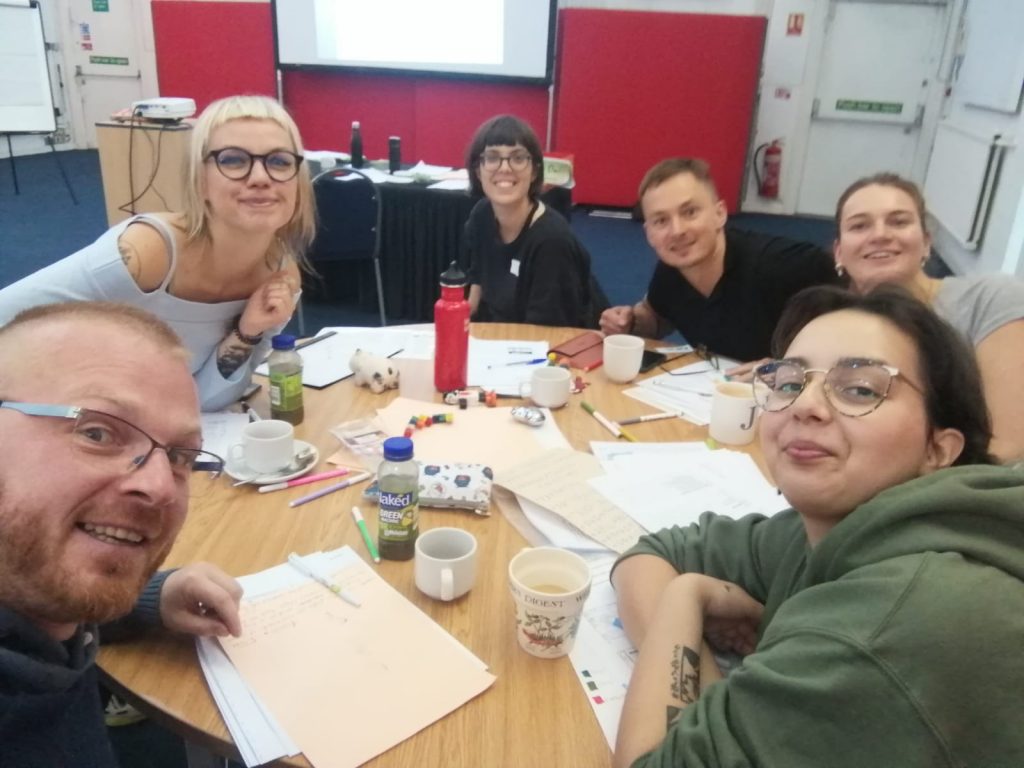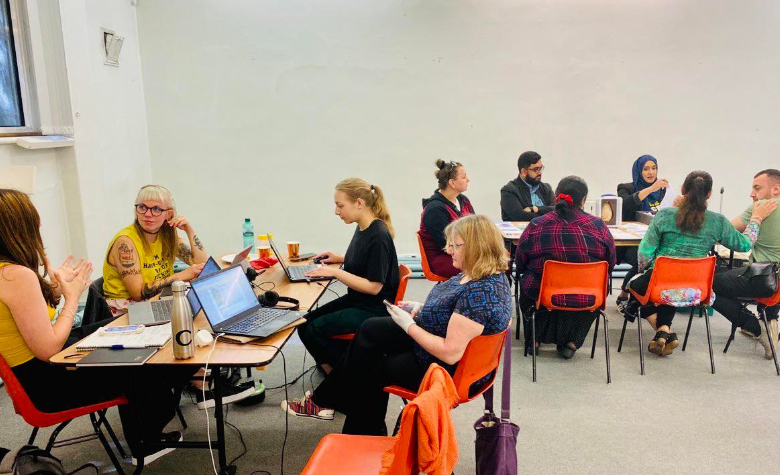
European nationals in Salford are struggling to access benefits and health care because of Brexit’s ‘confusing’ and ‘complicated’ settlement scheme.
They are being supported by the Labyrinth Project run by Europia, Gaddum, and The Melissus Project, operating at the Eccles Public Library, where around three-quarters of pleas for help relate to unresolved citizenship issues.
The project consists of unreferred weekly free drop-in sessions where Eastern and Central European nationals can receive basic guidance, translations, or be directed to the correct support.

Emmeline Cottam, team leader for the Labyrinth Project, said: “After Brexit, people who previously hadn’t needed settlement to be in the UK, access the NHS, and access benefits or Universal Credit, suddenly needed it, so there’s a huge influx in the number of people that needed to apply.
“The process is complicated, so for someone who doesn’t have that experience, and has English as their second language, it’s even worse and more complicated and more difficult, so there’s huge numbers of people who are struggling with those applications.”
The Labyrinth Project, even though it has been helping with applications since June, has not yet seen a single successful case of a settlement application being completed.

Before Brexit, many European nationals did not need to prove their right to live and work in the UK. However after the completion of Article 50 on January 31 2020, the cost of living crisis, and the higher demand for NHS services, an influx of applications and requests filled the government website.
Ms Cottam continued: “Part of the evidence that one needs to provide is the proof that you’ve been in the UK for six months of the year, and you can do that with things like bills or bank statements, or, sort of evidence of your address.
“But a lot of the service users we see don’t have house contracts. So they’ll be paying rent cash in hand, with no receipts and no evidence of their tenancy.
“A lot of service users also don’t have banks at all, so we’re sourcing and providing that evidence in chronological order.
“So, people before Brexit didn’t think that they would be having to provide that evidence, and now suddenly have to and it’s just very, very complicated.”
Konrad & the #Europia team are here to help Eastern & Central European nationals find their way out of a #Labyrinth of information.
Mondays, Tuesdays and some Wednesdays!https://t.co/aGdNJqeOyy #immigration #advice @GMLibraries @MancLibraries @ManCityCouncil @MCR_Charity pic.twitter.com/acaVVlA8Ma
— Europia (@EuropiaMcr) November 28, 2022
The settlement scheme applications are only available in English, and it sometimes uses “complex jargon”, making the experience of applying harder to understand for those who do not know how to read or speak English.
This can make the process take longer periods of time, and sometimes European nationals go through roadblocks which Emmeline claims could have been easily avoided if the scheme was more “user friendly”.
She said: “Even when we ring and try and chase them up and say, ‘They’ve now submitted their evidence’ ‘Why haven’t they heard anything from me for a month?’ people at the other end of the phone just say, ‘There’s nothing we can do about it’.”
However, as the drop-in sessions are just about guidance and advising people through “the labyrinth” of social services and Salford support, there is a limited amount of help that its staff is qualified to offer.
The Labyrinth Project in their free sessions also support European citizens deal with mental health, housing benefits, universal credit and other more complex sensitive cases, like domestic violence.
The project prides itself in guiding those struggling before they face crisis.
Ms Cottam said: “Having done case studies, we know that the need for immigrant support is there in the community and the population in Salford.
“There’s a lot of vulnerable people with complex needs that we could work with.”
The Labyrinth Project, even if not successful in some bureaucracies, has helped many Central and Eastern European nationals in Salford find the next step to get out of the threat of poverty or losing benefits.















Recent Comments